It was at the end of October 2018 when Éliane Houlette, then head of the French public prosecution services’ financial crimes branch, the PNF, was handed a legal statement filed by a well-established anti-corruption NGO alerting her office to a suspected and potentially far-reaching scam involving the French state and one of the country’s industrial giants, Dassault Aviation.
The Paris-based NGO, an association called Sherpa, reported – notably citing media revelations – suspected corruption, including money laundering, influence peddling and favouritism, surrounding the sale by France to India of 36 Dassault Rafale multi-role fighter jets in a deal worth 7.8 billion euros.
The document filed by Sherpa – called a “signalement”, which in France is a form of official alert to suspected criminal behaviour that can be filed by persons or entities who are not directly victims of the alleged crime – was politically highly sensitive, not only because it centred on a massive arms deal agreed between governments, but also because it threatened possible ramifications for French President Emmanuel Macron, his predecessor François Hollande, and Jean-Yves Le Drian, who served as Hollande’s defence minister and who Macron subsequently appointed as foreign affairs minister – a post he still holds.
It was in January 2016 when then president François Hollande and India’s Prime Minister Narendra Modi signed an inter-governmental agreement for the Rafale contract. Immediately before that contract was inked, Dassault Aviation’s principal Indian industrial partner in the deal, the Reliance Group, with multiple activities in defence, construction, telecommunications and entertainment, pledged 1.6 million euros in funding for a feature film co-produced by Hollande’s personal partner, the actress Julie Gayet.
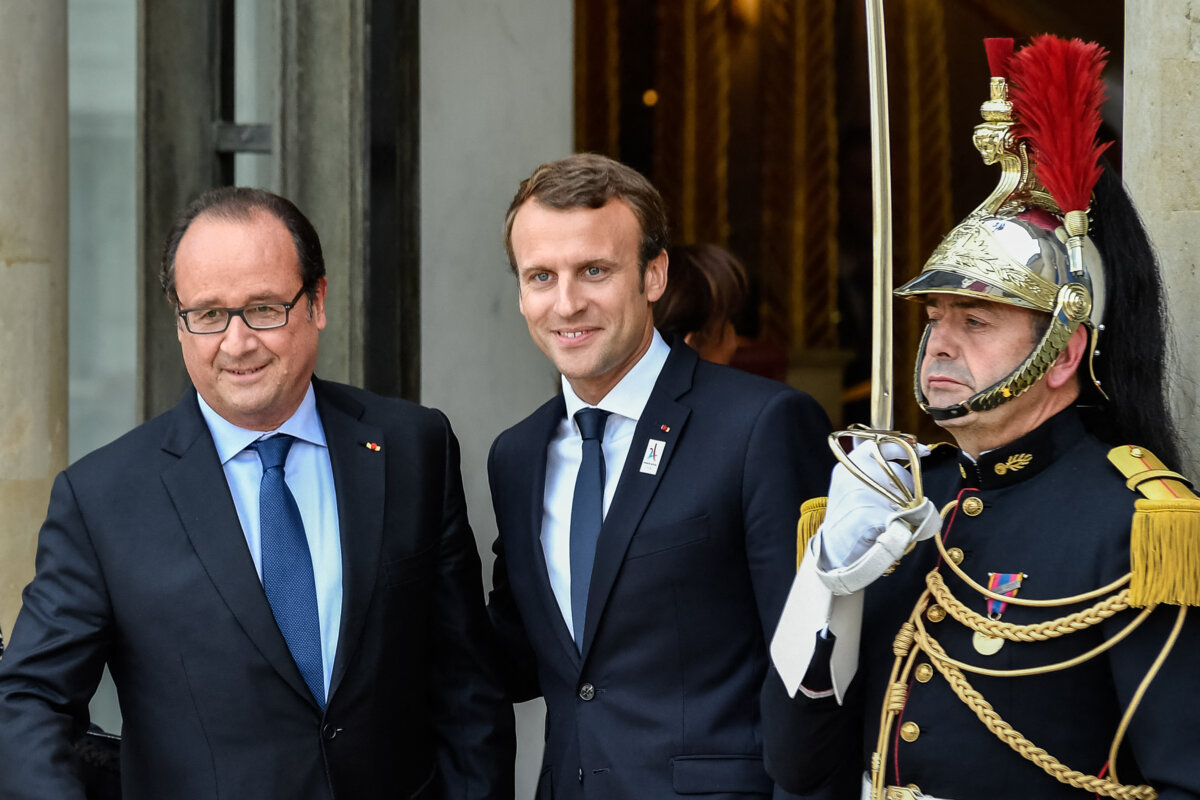
Enlargement : Illustration 1

François Hollande, questioned by Mediapart in 2018, said he was at the time “not at all informed” of the investment in Gayet’s film by Reliance. He also said that Reliance Group, and its chairman Anil Ambani, a friend of Modi’s, had been imposed on Dassault as industrial partner in the Rafale deal by the Indian government (see more here and here). Both Dassault and then French defence minister Jean-Yves Le Drian have denied the suggestion.
Meanwhile, according to a report in April 2019 by French daily Le Monde, Emmanuel Macron, who served as Hollande’s economy minister between 2014 and 2016, was allegedly involved in the granting by the French tax authorities of a generous tax adjustment to a French subsidiary of Reliance, reducing the subsidiary’s tax debt from an initial total of 151 million euros to 7.6 million euros. The French presidential office, the Élysée Palace, told the daily that Macron’s advisors from the time when he was economy minister could not recall an alleged meeting on the subject between him and Reliance Group chairman Anil Ambani.
Documents and first-hand accounts obtained by Mediapart show that, following the potentially explosive alert filed by Sherpa, PNF chief Éliane Houlette made no serious attempts to investigate the suspicions of corruption and favouritism surrounding the Rafale deal. She did however hold an informal meeting with a lawyer representing Dassault.
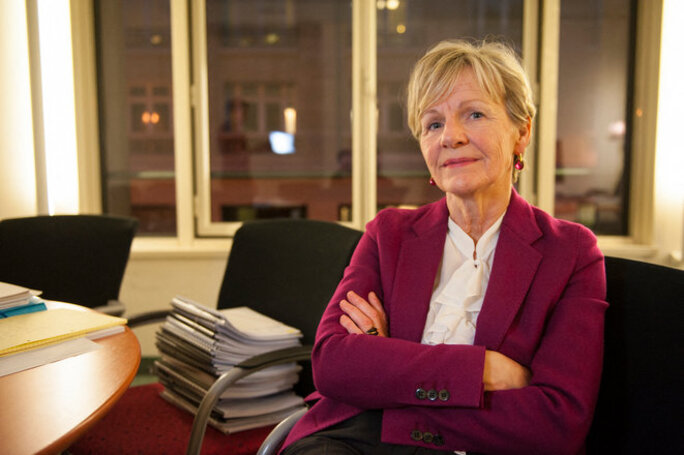
Enlargement : Illustration 2

In June 2019, shortly before leaving her post as head of the PNF, Houlette decided to close the preliminary investigation into Sherpa’s complaint, citing the “absence” of any offence, in a move which went against the advice of the deputy prosecutor in charge of the case and who refused to write up the official notification of it being dropped.
Houlette’s decision, however, was finally validated by two magistrates of the Paris public prosecution services and was enacted by Jean-François Bohnert, who succeeded her as head of the PNF.
“One can’t, all the same, take aim at everything,” said Houlette in an interview with Paris Match magazine published in July 2020. “It is necessary to weigh things up, to preserve the interests of France, the workings of institutions.” The fact that Houlette, a high-profile figure of the fight against corruption in France, and who, from 2014 to 2019, had been the first head of the PNF following its creation, could justify closing a sensitive case on the basis of national interest prompted no public reaction.
Contacted by Mediapart, Éliane Houlette declined to be interviewed. “I am no longer financial [crime] prosecutor,” she said. “Address yourself to Mr Bohnert, it’s he who will reply to you. I don’t intend to reply.”
Dassault did not reply to questions submitted to it by Mediapart. The responses in full of others cited in this report can be found by clicking on the 'More' tab, top of page, or by clicking here.
The story of the events begins in 2012 when, following a public tender, Dassault Aviation was chosen to negotiate a contract for the supply to the Indian Air Force of 126 Rafale jets. Of these, 108 were to be assembled in India – in what is known as an “offset” agreement, for the benefit of the local economy – by the state-owned aerospace and defence corporation Hindustan Aeronautics Limited (HAL), which the Indian government had appointed as Dassault’s principal industrial partner.
The sums involved attracted covetous interest; as part of the provisional deal, Dassault was to plough around 4 million euros – half of the value of the contract – back into Indian companies, such as through component purchases.
Negotiations to hammer out the detail of the definitive contract continued for three years before a sudden turnaround in April 2015. That was when Indian Prime Minister Narendra Modi, who came to office the previous year, announced that he wanted to overturn the terms of the original tender, and instead purchase just 36 Rafale jets, all of which would be manufactured in France.
HAL was sidelined from any further involvement, and the state-owned company was replaced as Dassault’s local industrial partner by the private conglomerate Reliance Group, whose chairman and majority shareholder, Anil Ambani, enjoys close relations with Narendra Modi. At the time, the Reliance Group had no experience in aeronautics and was in poor financial shape. Furthermore, Ambani appeared to have known in advance that his group would be awarded the principal partnership with Dassault.
The decision to change the original Rafale contract into a new deal for the purchase of 36 of the fighter aircraft was announced by Modi on April 10th 2015 during a press conference in Paris after a meeting with then French president François Hollande. Less than three weeks before Modi’s visit to Paris, Ambani also travelled to the French capital to hold a meeting, on March 23rd, with several top advisors to then French defence minister Jean-Yves Le Drian. In a confidential email revealed since by the Indian National Congress party, during the meeting, the Reliance chairman is reported to have raised the matter of a Memorandum of Understanding (MoU) “in preparation and the intention to sign during the PM visit” – an apparent reference to Prime Minister Modi’s visit to France the following month.
Reacting to the leaked email, Reliance said the MoU referred to an agreement with Airbus and did not involve the Rafale contract. But on March 28th 2015, five days after his meeting in Paris with Le Drian’s advisors, Ambani created a subsidiary called Reliance Defence, and in April 2015, when the new Rafale contract was announced, it reached an agreement to create a joint-venture association with Dassault – more than one year before the Rafale deal was definitively sealed.
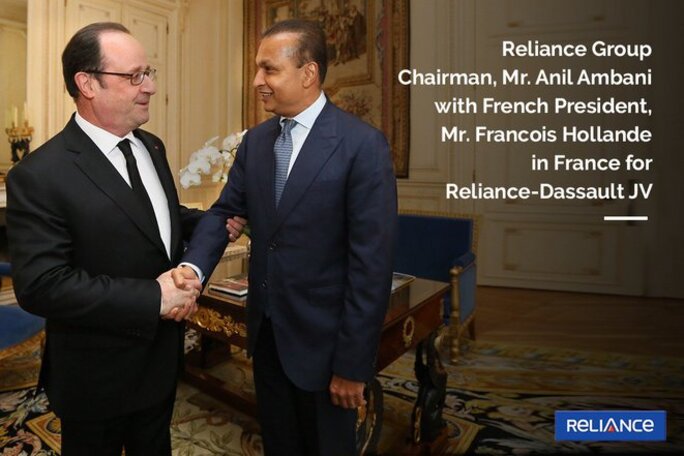
Enlargement : Illustration 3

In a reply to questions submitted to him by Mediapart, Jean-Yves Le Drian commented that, “Mr Anil Ambani had had contacts within the French administration, as is normal for the leader of a large foreign industrial group”. He gave no further detail on the subject.
The circumstances surrounding the Rafale contract erupted into a scandal in India during the summer of 2018, following local press revelations. Indian daily The Hindu published confidential documents pointing to “parallel negotiations” over the deal that were led by the Indian prime minister’s office behind the backs of the defence ministry, and highlighted the vast rise in the unitary price of the jet fighters in the new contract in which Reliance was favoured.
Meanwhile, Dassault and the French and Indian governments all insisted that the French aircraft manufacturer had freely chosen to associate itself with Reliance. That argument collapsed after Mediapart published an interview on September 21st 2018 with François Hollande (who left office in 2017) in which he stated that, “It is the Indian government which had proposed this service group”, referring to Reliance, and that “We didn’t have any say in this matter”. Subsequently, on October 10th 2018, Mediapart revealed the contents of a Dassault company document in which a senior executive was quoted as saying the group accepted to work with Reliance as a “compensation” in the Rafale deal and that it was both “imperative and obligatory” for Dassault to do so in order to secure the fighter contract.
As also reported by Mediapart, it was on January 24th 2016, the same day when François Hollande arrived in New Delhi on a three-day visit when he was to sign the preliminary contract for the sale of the Rafale jets, that Reliance announced its investment of 1.6 million euros in a film, Tout là-haut, co-produced by Hollande’s personal partner Julie Gayet.
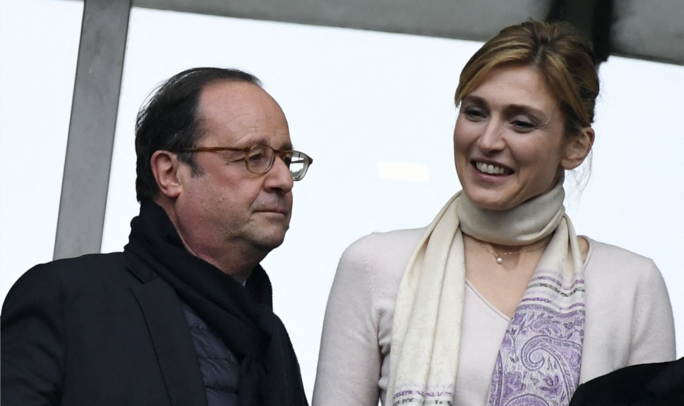
Enlargement : Illustration 4

On October 26th 2018, French anti-corruption NGO Sherpa addressed its legal alert, or “signalement”, to the financial crime prosecution services, the PNF, in which it denounced “potential acts of corruption, the granting of undue advantages, influence peddling, aiding and abetting these offences, receiving the proceeds of corruption and money laundering by France and the company Dassault”.
As French weekly magazine Paris Match revealed, PNF chief Éliane Houlette decided to close all further preliminary investigations into Sherpa’s alert, a move which was contrary to the opinion of one of her deputy prosecutors, Jean-Yves Lourgouilloux, who was nominally in charge of the case. “One doesn’t open [a full investigation] over simple unsubstantiated suspicions […] There was a will to force my hand,” she told the weekly.
Contacted by Mediapart, Jean-Yves Lourgouilloux said: “I left the PNF more than 18 months ago now. I cannot comment on this case.”
According to several judicial sources, Éliane Houlette’s decision to close the case, and also her comments about the affair, prompted strong feelings against her within the PNF, and fed suspicion in some quarters of her lack of pugnacity in probing cases that might embarrass the Macron administration.
Mediapart learned that Houlette carried out no enquiries to speak of before closing the preliminary case, and interviewed only one person at her office, in an informal meeting where no statement was officially recorded. This was a meeting with Kiril Bougartchev, a lawyer representing Dassault.
While Houlette has declined to reply to questions about the case, a representative of the PNF, in a written reply to questions submitted by Mediapart (see the reply in full by clicking on the ‘More’ tab above this page), underlined that “the Dassault company's lawyer was not interviewed by our prosecution service”. That was a confirmation that no interview of the lawyer was made in which a formal statement would have been added to the case file. However, the PNF did not confirm or deny that there had been an informal interview with the lawyer.
Kiril Bougartchev did not reply to questions submitted to him by Mediapart.
Such informal interviews with lawyers are perfectly legal in France, but they rarely occur at the beginning of an investigation. Moreover, Sherpa, whose alert initiated the PNF procedure, was never invited to such a meeting.
Dassault used the opportunity to steer the PNF’s appreciation of the case, arguing that the Indian authorities had not imposed the choice of Reliance as its industrial partner in the new deal for the Rafales given that the Indian group had already been chosen as a partner three years earlier, in February 2012, in the first contract. Which was what Dassault Aviation CEO Éric Trappier set out in an interview with Indian television channel CNBC TV18 (see video below).
To prove its argument, Dassault sent a copy of that earlier contract to the PNF. But that was an attempt to mislead the prosecution services. There are two, separate Reliance groups in India, one led by Anil Ambani, and the other by his brother, Muskesh Ambani. The contract signed by Dassault in 2012 was with Muskesh Ambani’s Reliance Industries, which abandoned all activity in the defence industry two years later.
Dassault had no links in 2012 with Anil Ambani’s group Reliance ADAG. As Dassault itself recognised in a statement it released in April 2018 , the partnership with Anil Ambani’s group was decided in April 2015.
The suspicions surrounding the Rafale deal deepened in April 2019 when Le Monde revealed the generous tax adjustment granted to Reliance Flag Atlantic France, a French subsidiary of the Reliance Group specialised in telecommunications. The French daily detailed that the company had faced a massive tax debt demand of 151 million euros, but that the French tax administration finally agreed, in October 2015, six months after the Rafale deal was announced, to reduce the amount owed to 7.6 million euros.
Le Monde also reported that a Reliance employee close to Anil Ambani had spoken, on condition his name was withheld, of how he and Ambani, in early 2015, had met with Emmanuel Macron, who was then France’s economy minister, at his ministerial office, “where the tax problem was settled in a phone call to his administration”.
The Élysée Palace told Le Monde that the meeting in question was not recorded in Macron’s official agenda, and that “none of his advisors” of the time recalled “such a meeting between Emmanuel Macron and Anil Ambani”.
In short, the French president refused to personally comment on the alleged meeting, which is neither clearly denied nor confirmed. Contacted by Mediapart on the subject, Macron did not reply.
On May 21st 2019, Sherpa sent another alert to the PNF, this time about the decision to vastly reduce the tax debt owed by the Reliance Group’s French subsidiary. Two months later, PNF chief Éliane Houlette closed the case, shortly before she left her post on June 30th that year.
With the help of several judicial sources, Mediapart has learnt how she justified her decision to staff within the PNF. Mediapart also questioned the two magistrates from the Paris public prosecution services, Muriel Fusina and Yves Micolet, who at the time were preparing to take up posts as interim heads of the PNF during the four months between Houlette’s departure and the arrival of her successor.
Explaining her decision, Houlette spoke to her colleagues within the PNF about the need to protect national interests (as she later told Paris Match, “to preserve the interests of France”), arguing that there was no reason to order an investigation into a contract between two governments. She also argued that the suspicions of corruption were without a serious basis and had been blown out of proportion by the press in the context of legislative elections in India.
Concerning the funding by Reliance of the film co-produced by François Hollande’s partner Julie Gayet, Houlette argued that there was no evidence to suspect wrongdoing given that Reliance itself had announced its investment in the film, and therefore had nothing to hide.
But that was to ignore that the statement released by Reliance would have been largely ignored without the subsequent investigations by the media, and that the statement did not detail the sum invested, namely 1.6 million euros.
The most surprising of Éliane Houlette's explanations relates to the reduced sum that Reliance was asked to pay by the French tax authorities after the tax adjustment. The PNF boss initially indicated that the reasoning behind this decision was not known because of “tax confidentiality”.
Yet this confidentiality does not apply to the justice system, as shown in the case of the massive tax rebate given to businessman Bernard Tapie (see here in French). This rebate was discovered by investigating judges after they started examining the case and saw internal emails from the public finance directorate, the Direction Générale des Finances Publiques (DGFIP).
Éliane Houlette herself made no official request for information from the tax authorities. Instead, she chose to make an informal phone call, without taking written notes, to a senior official at the DGFIP. This official was Frédéric Iannucci, who headed the DVNI, the unit that carries out tax inspections on large companies.
“The tax administration is in regular contact with the Parquet National Financier, as the law permits and encourages,” Frédéric Iannucci told Mediapart when asked about this informal consultation, declining to say more because of “tax confidentiality”.
The DGFIP told Mediapart that Iannucci had replied “in [our] name as well”.
The boss of the PNF at the time explained to her colleagues and to the prosecution service at the Paris courts, the parquet géneral, that Frédéric Iannucci had given a “very plausible explanation”. This was that the tax authorities had initially adopted a tough stance because the company was not producing the documents that had been asked for, then changed their stance when Reliance finally provided them.
Following a 2011 tax inspection, the tax authorities had accused Reliance Flag Atlantic France (RFAF), who operated a submarine telecommunications cable, of artificially reducing its profits in France by paying over-the-odds fees to other companies in the group which were based in tax havens.
As RFAF had refused to provide the relevant documents, the tax authorities took the view that all the expenditure was excessive, and so non-deductible against tax. That explains the initial huge tax bill of 151 million euros. “It's standard strategy: the tax authorities get out the nuclear weapon to push the company to supply the documents,” explained a tax expert whom Mediapart consulted. “If they cooperate it's quite normal for the final amount of the tax adjustment to go down, because part of the expenditure corresponds to genuine services.”
But the informal response that the head of the DVNI gave to Houlette does not answer every question. Why did Reliance wait until 2015 and the announcement of the Rafale contract before producing the documents they had refused to supply over the previous four years? Was the 143-million-euro reduction in tax justified? How was it that the final amount of the tax readjustment to pay – 7.6 million euros – corresponded exactly to the sum that the company had decided to set aside in its accounts?
When questioned, the DGFIP refused to comment.
Only a judicial investigation could have determined for sure whether there had been any political intervention. But Éliane Houlette had “no doubts” and wanted to close the case because of the “absence of an offence”, against the advice of her assistant prosecutor in charge of the case.
The PNF said that Houlette had “left open the possibility” for Muriel Fusina and Yves Micolet – the two senior prosecutors from the parquet général prosecution service at the courts in Paris who took over as interim heads of the PNF after she left her position – to “confirm or overturn her decision”. They approved it on July 15th 2019. The prosecutor general at the court of appeal in Paris, Catherine Champrenaul, said she was not asked to “pronounce” on the issue.
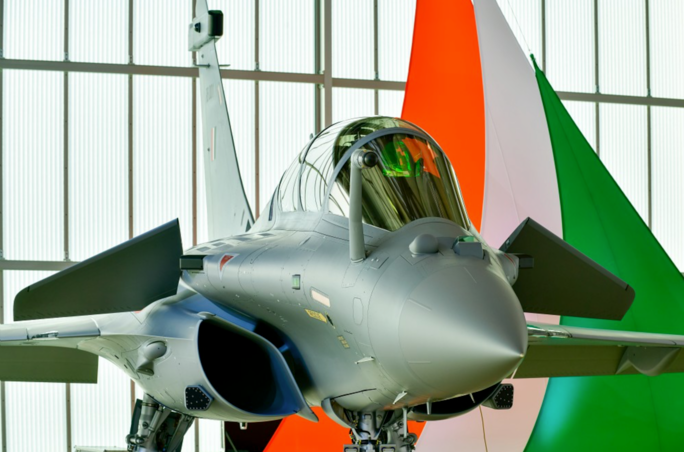
Enlargement : Illustration 6

Meanwhile, according to several legal sources, the deputy prosecutor in charge of the case at the PNF let it be known within the organisation that he refused to draft and sign the formal legal notice closing the case because he would have been unable to cite a reason for closing it.
The result was that when the current boss of the PNF, Jean-François Bohnert, took up his duties on October 14th 2019, the legal notice closing the case had still not been written. In the end it was his number two, Jean-Luc Blachon, who dealt with it.
The PNF said that the decision to close the case had been made by Éliane Houlette and her successors after “careful analysis” of the alert they had received from Sherpa. “None of the factual elements revealed by the association Sherpa justified the opening of a criminal investigation for corruption or illegal conflict of interest,” it told Mediapart. As a result, “it was not referred to any investigation unit […] and no investigation was carried out”, it said.
The PNF emphasised the fact that the decision was taken before Jean-François Bohnert was appointed, and that he did “not have any knowledge of this case”, while Jean-Luc Blachon had simply “formalised [the closure of the case] on an administrative level”. The PNF boss Jean-François Bohnert could reopen the case if there was new information as “Madame Houlette had … envisaged”, but the financial prosecution service said they were unaware of any “additional information […] since July 15th 2019”.
Having been informed in February 2020 that its alert was no longer being pursued and no further action was being taken, Sherpa asked to see a copy of the file, as it has a right to do. Jean-Luc Blachon, the number two at the PNF, refused, on the grounds that no prosecutor or detective had exercised their “police powers” during “investigations”.
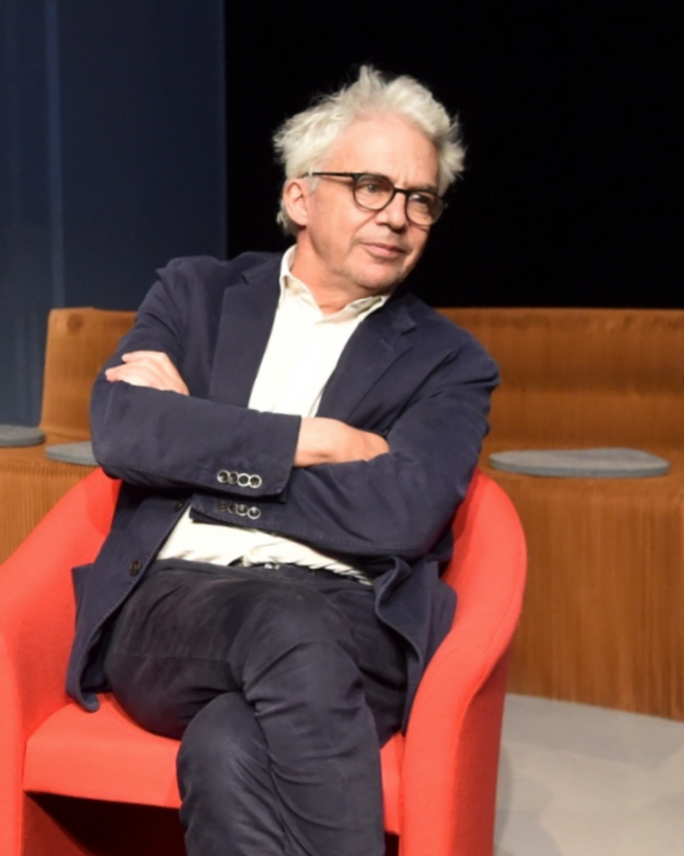
Enlargement : Illustration 7

France's criminal procedure code does permit a prosecutor to refuse to hand over to a complainant the file on a case that has been closed. But several lawyers to whom Mediapart spoke found the reasons cited by the PNF in the Dassault case very surprising.
“This argument is completely bizarre, and the PNF's decision is very rare,” said Sherpa's president and founder William Bourdon, who is a lawyer. “I've had just one refusal to send a file in a case that's been closed in my whole career. That was a terrorism case.”
The PNF responded that it was “not materially possible” to send the file as “no investigation was carried out”.
“Our conviction is that an investigation should have been necessary, but that it seems to have been stopped,” said William Bourdon. He said that Sherpa now intends to “make a new complaint”, as a civil party, because “we're persuaded that this very serious affair merits a judicial investigation”.
The case could already have been relaunched. In October 2018 the French anti-corruption agency, the Agence Française Anticorruption (AFA), discovered new information that was embarrassing for Dassault, as Mediapart revealed in the first part of this investigation. But the AFA did not refer this information to the prosecution authorities.
The questionable payment discovered by the AFA was just the tip of the iceberg. In India, many confidential documents on the Rafale contract have been discovered. As will be seen in the final part of Mediapart's investigation, the contents of those documents are explosive.
-------------------------
If you have information of public interest you would like to pass on to Mediapart for investigation you can contact us at this email address: enquete@mediapart.fr. If you wish to send us documents for our scrutiny via our highly secure platform please go to https://www.frenchleaks.fr/ which is presented in both English and French.
-------------------------
- The original French version of this article can be found here.
English version by Graham Tearse and Michael Streeter


